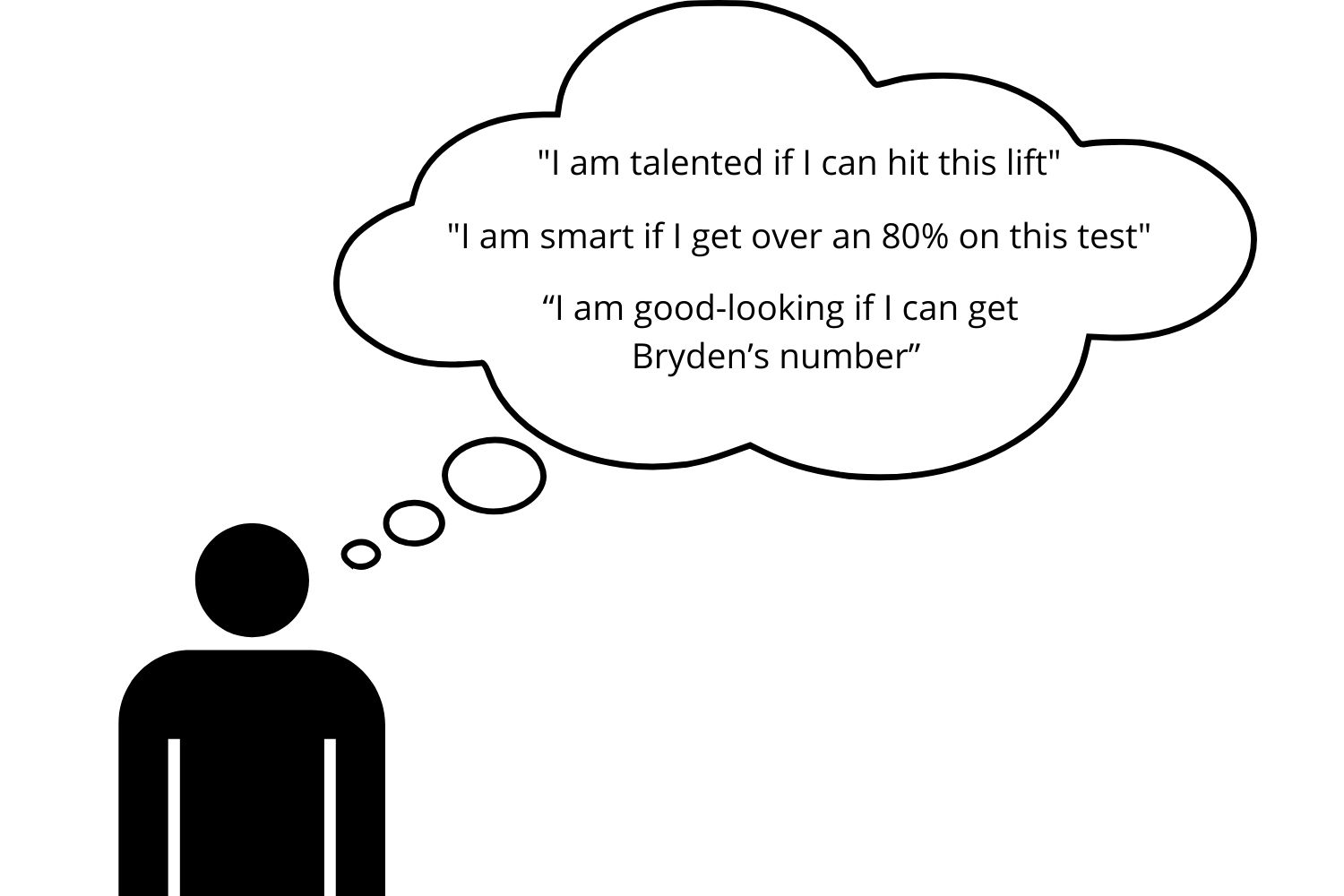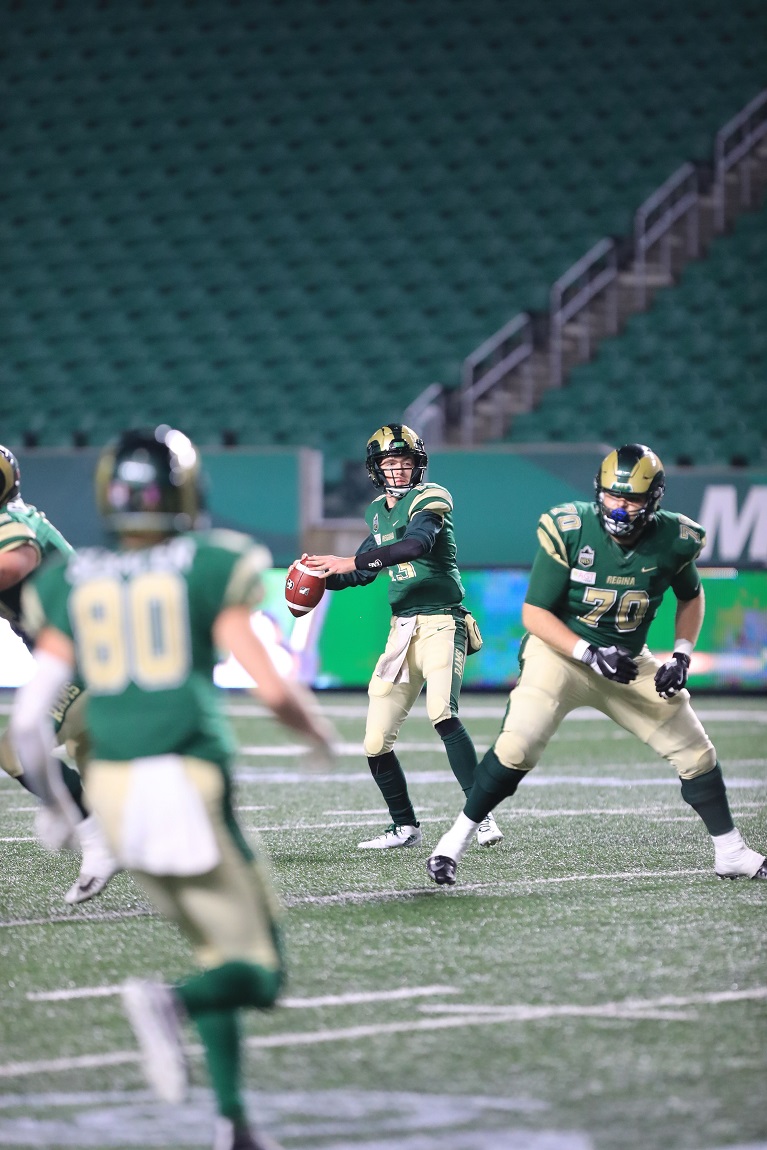
A growth mindset is one of the most powerful tools an athlete can possess. But what is a growth mindset? In this article, I’ll give you the full breakdown and how to achieve a growth mindset yourself.
“[A] growth mindset is... the belief that your basic qualities are things you can cultivate through your efforts, your strategies, and help from others” - Carol Dweck, Mindset. In other words, you control who you are, what you’re good at, what you’re capable of, and who you want to be.
It’s a life-changing way of thinking. Instead of being the victim of circumstance, your life is in your hands. Every ability, characteristic, or trait you possess is capable of being changed through effort and strategy.
An athlete with a growth mindset recognizes that their abilities on the court, rink, or field are not static and with hard work and a relentless focus there isn’t a limit to what they’re capable of.
A fixed mindset is the belief that your abilities are “carved into stone” or that “you have only a certain amount of intelligence, a certain personality, and a certain moral character” - Carol Dweck, Mindset.
Every ability, characteristic, or trait you possess is fixed, you will never change. In addition, you define yourself by these fixed traits.
This mindset that you possess a fixed set of qualities has a significant impact on your life and your actions.
Because your worth is defined by whether you are “smart”, or “strong”, or “good-looking” you constantly have to prove your worth through comparison and competition with others.

As a result, people with a fixed mindset stop challenging themselves because if they fail one of their self-made “tests” they’re not good enough anymore. “I’m gonna stick with the weight I’m comfortable with… because if I miss the lift that means I’m not talented”.
Or they self-sabotage so that they have an excuse for when they fail. For example, a person choosing not to study so when they get that failing grade back they can still define themselves as “smart” because they have that excuse ready that the mark was because they didn’t try.
Because these individuals have a fixed mindset they’re scared that one day someone’s gonna look at them failing a lift, or doing poorly on a test which they studied hard for and say “Wow, you’re not special.”
The benefits of a growth mindset are freedom and control. A little bit contradictory but I’ll explain myself.
A growth mindset gives you the freedom that you can do anything you desire if you work at it. It’s a little bit idealistic I know, but it’s true. When you realize that your abilities are not set in stone the whole world opens up to you.
A growth mindset also gives you control over your life. You are responsible for creating the change within yourself that you want to see. If you want to be a pro athlete you control whether or not you put the work in to achieve it.
Here’s a great exercise from Mindset adapted for athletes.
You’re playing basketball, it’s the end of the fourth quarter, down by 2, 10 seconds on the clock, games on the line and your coach calls a timeout. She starts drawing the play on the whiteboard and you realize something, you’re gonna get the last shot. The game’s on your shoulders.

Put yourself in a fixed mindset. Your ability is on the line. You miss this shot, you “suck”. Can you feel everyone’s eyes on you? Can you see your teammates’ faces evaluating you? Are you gonna choke? Feel the tension, feel your ego bristle and waver. What else are you thinking and feeling?
Now put yourself in a growth mindset. You’re here to see just how good you can possibly be. To see what you’re capable of. You’re here to learn. This game is an opportunity to discover more about yourself. To feel what it’s like to be in control, to take care of business. Feel the tension leave; feel your mind open up.
You can change your mindset.
Before we start on how to develop a growth mindset I want to make one point clear. Having a growth mindset or a fixed mindset is not a switch that can you simply flip from “fixed” to “growth”. It’s a constant battle to adopt a growth mindset and even the best person will fall back to a fixed mindset in certain situations.
To begin we’ll assess your current mindset based on a series of questions pulled from Mindset by Carol Dweck.
Whether you already have a growth mindset or are trying to move away from your fixed mindset the gameplan is the same.
It’s not as simple as saying “I want to have a growth mindset” and boom you have one but it’s not overly complicated. I’ll give you three actions that you can take now and implement in your life to adopt a growth mindset.
Those with a fixed mindset see little value in pursuing learning. If you have the talent why do you need to learn anything, right? So what happens when a fixed mindset individual is suddenly confronted with the fact that they’re not able to rely on their talent alone anymore? They give up.
You see this all the time in sports. The big shot from highschool or university takes the step up to the next level and suddenly realizes they’re not special anymore. Everyone at the next level is just as fast, just as strong, just as special.
Individuals with a fixed mindset will look around and think “Guess I’m not as good as I thought. I can’t compete at this level.”
Individuals with a growth mindset will look around and think “Guess I’m not as good as I thought. I can’t compete at this level… yet.”
Those with a growth mindset understand that their abilities are not fixed and by embracing learning they can do anything if they put the work in. My first action for developing a growth mindset is to embrace learning, embrace getting better.
I’ve already gone over how individuals with a fixed mindset will set easily achievable goals or self-sabotage themselves so they have an excuse for poor performances. The remedy is easy, challenge yourself.
It’s that simple. Set a challenging goal, then give everything you have to achieve it. Importantly, when the results come back don’t define yourself simply on whether you did well or not. Define yourself based on the hard work you were willing to put in, define yourself as the person who is willing to push themselves and grow from the experience.
What is failure to you? I genuinely want you to take a second and think about it.
For a long time, failure to me was making a mistake and being unable to achieve my goals. When I missed a lift or threw a pick, that was a failure.
The change came when I realized that those outcomes were outside of my control. And if I can’t control it, why am I basing my self-worth on it? So I changed my definition of failure.
Failure is not giving everything I have when confronted with a challenge.
Failure is being unable to learn from my mistakes.
Not giving everything I have is simple, if I ever choose to lay down and give up that is failure, plain and simple. I never want a lack of effort on my end to be the cause of a bad game or a failed test. Even if I do well but don’t give 100% of my effort that is failure. My effort is 100% within my control and not giving everything I have is completely on me.
Being unable to learn from my mistakes is an interesting one. It took me a while to instill this principle within my mindset. In the past I was ashamed of my mistakes, now I’m more ashamed of failing to learn from my mistakes and making the same mistake twice.
I’ll give you an example of this new definition in action. Down 5 at the opponent’s 18-yard line, fourth quarter, 12 seconds on the clock, in my first-ever start at the university level with our playoff chances hanging on this win. I was right where I wanted to be. Game on the line with the ball in my hands. And I promptly threw a pick.
It hurt. I had let my teammates and coaches down.

I made a mistake but at the end of the day, it wasn’t a failure. I had given everything I had in that game and learned a valuable lesson. A costly lesson for sure, but the true failure would have been if I hadn't learned anything from my mistake.
Mindset is the most important aspect of sports and a growth mindset is one of the most powerful tools an athlete can possess. At the highest levels, it’s almost impossible to find an ultra-achiever who doesn’t possess a growth mindset. Michael Jordan, Katrin Davidsdottir, Tom Brady wouldn’t be at the level they’re at without a growth mindset. When Jordan got cut from his high-school team he could’ve let that define him, “If I can’t make the team I guess that means that I’m not a good player.” But he knew that his abilities were not set in stone and got to work.
I’d sit here and give you some more examples of growth mindsets in sports and how they can help you achieve your goals but someone already did that. Chapter 4 of Mindset by Carol Dweck is “Sports: The Mindset of Champions” where she provides examples, tips, and lessons from some of the greatest players to ever do it and how to apply those principles to your own life.

Mindset defined the entire theory of a growth mindset and I cannot emphasize how powerful this book is and I’d recommend it for anyone regardless of age or current level of sport. If this guide struck a chord in you and instilled an interest in developing a growth mindset get Mindset by Carol Dweck.
If you learned something from this post sign up for our email newsletter below to never miss a Sled Dog Sunday and take control of your athletic performance.
Please note – We use affiliate links on this page. This means we earn a commission if you click on a link and buy something.
Important - We only chose products that we ourselves use and stand by.
Here are some other posts you might like